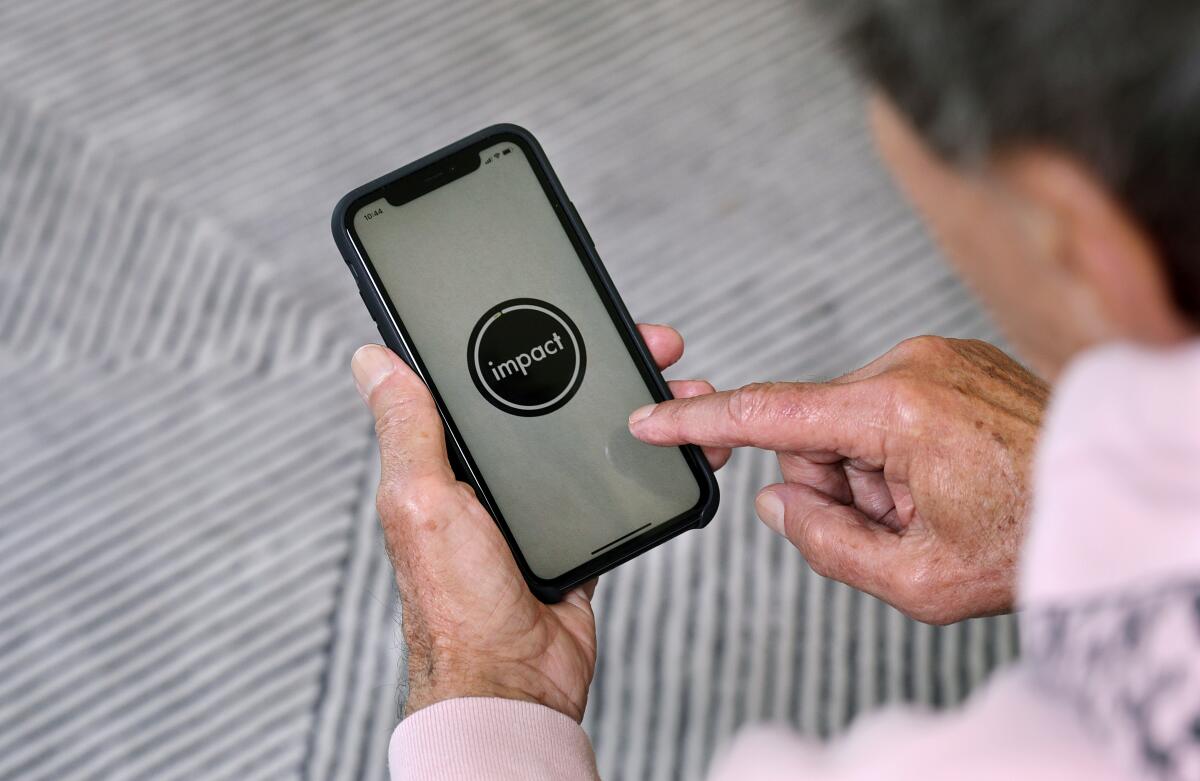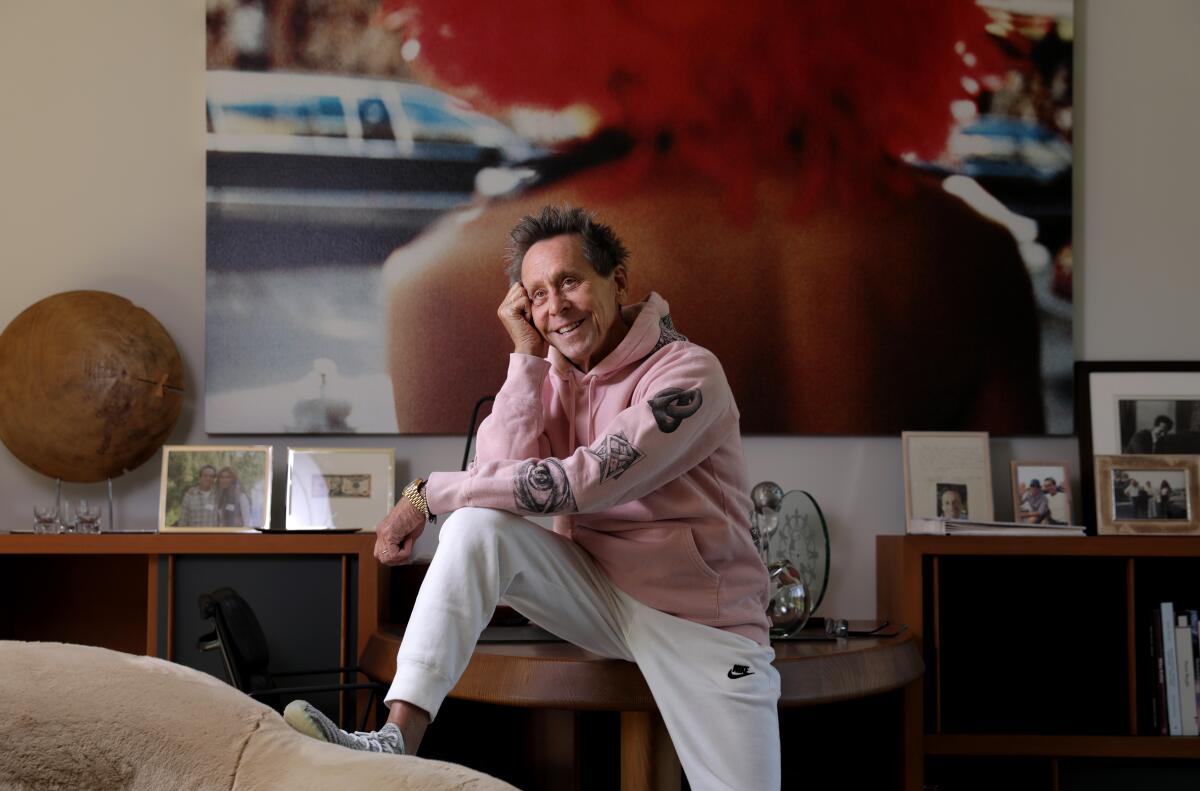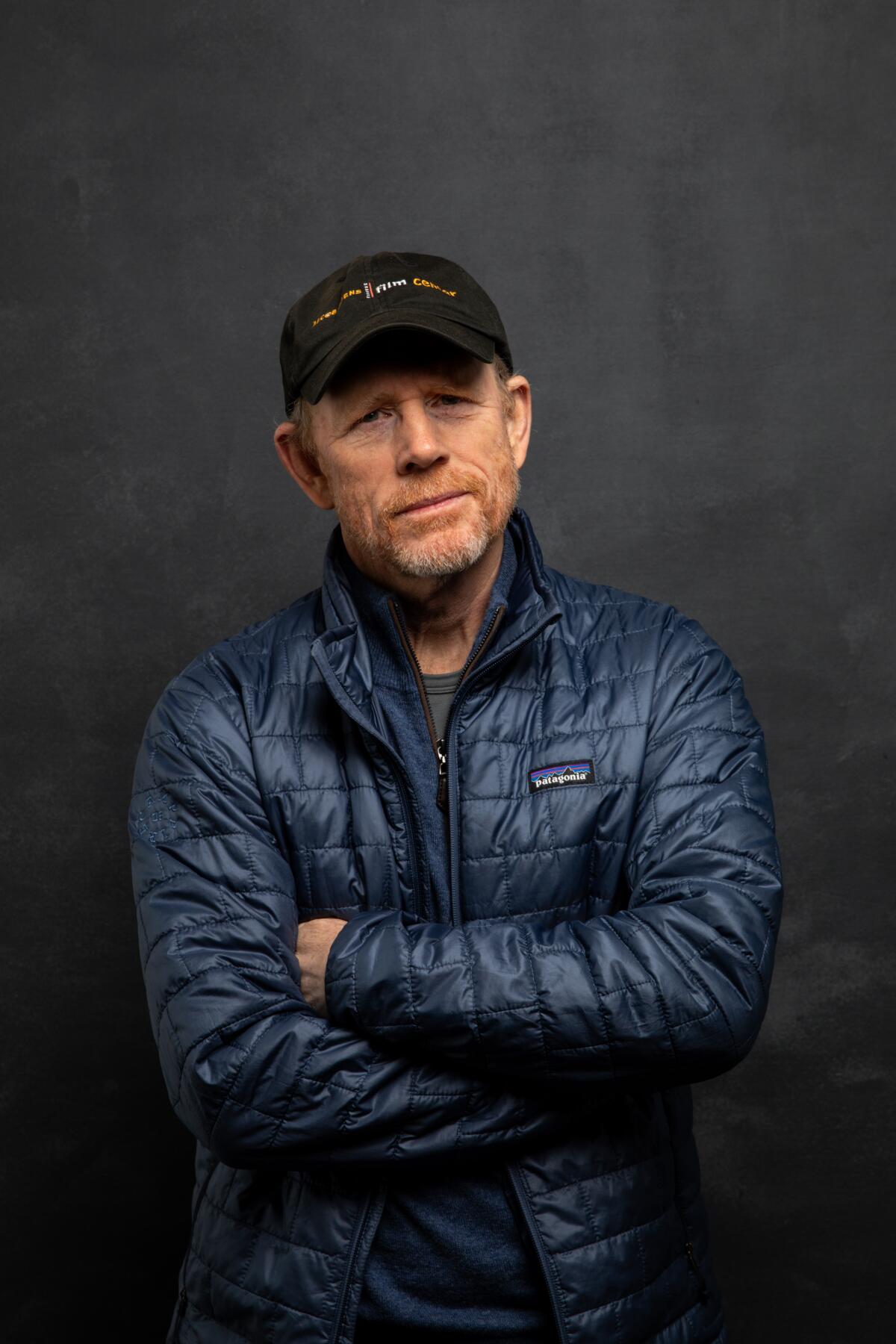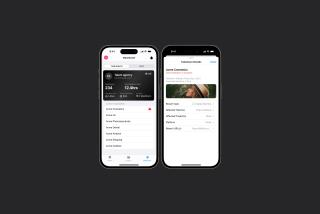Hollywood has a talent pipeline problem. Brian Grazer and Ron Howard have an app for that

The entertainment business has embraced modern technology when it comes to streaming shows, targeting ads and using data to predict what you’ll like. When it comes to hiring screenwriters, though, Hollywood is a Luddite, relying on personal relationships, phone calls and lists of proven scribes cobbled together by talent agencies and studio executives.
Oscar-winning filmmakers Brian Grazer and Ron Howard said they’ve witnessed that problem during their nearly four-decade-long partnership making movies including “Splash,” “A Beautiful Mind” and “Apollo 13.” Promising writers blow years of their lives trying to get agents and have their work seen by the right people.
“It’s called ‘development hell’ for a reason,” said Howard, 66. “It’s not just hard, it’s deeply flawed.”
So what are they doing to fix it? Their Los Angeles-based startup Impact Creative Systems has spent the last two years connecting up-and-coming talent with studios through its competitive screenwriter accelerator program — an eight-week boot camp that helps scribes get their scripts in shape to pitch to executives.
This week, the company expands with the launch of an app called the Creative Network, which allows executives to find talented writers and helps them get work. If successful, Impact hopes to grow the app to change hiring for not just writers but directors, crew and other professionals.
Impact — founded in 2018 as a unit of Imagine and now a separate entity — borrows Silicon Valley ideas to cut through a system that has for decades put up massive barriers for new talent, particularly outsiders and diverse voices, Grazer said.

“Hollywood is very medieval and extremely hierarchical,” said Grazer, 69, who was inspired by tech accelerator Y Combinator. The idea, he explained, is “to create some level of equality within all the voices that are not only in Hollywood but in the world.”

Eighty-seven writers have gone through the free-to-apply accelerator program, which matches participants with established industry mentors (dubbed “shapers”) to workshop their scripts. Its A-list speaker series has featured the likes of J.J. Abrams, Jason Bateman and Issa Rae. The program culminates in a “pitch day,” in which the writers show off their ideas for invited studio executives.
Impact, which employs 13 people, has held three programs in Los Angeles and one in Australia (a major international filmmaking hub), each costing about $1 million to put on, including stipends of up to $40,000 for participants. The recent Australian version, financed by the Australian government and film agencies, was held online over the summer because of COVID-19.
Alumni have gone on to staff jobs on shows and have sold films and series. Impact alum Tanya Steele was hired as a staff writer for the DC series “Doom Patrol.” Zimbabwe-born writer Godwin Jabangwe sold his animated musical “Tunga” to Netflix last year.
Cassius Corrigan, a 28-year-old filmmaker raised in Miami, successfully applied to Impact’s 2019 accelerator with his idea for a drama set in the world of mixed martial arts. He was paired with “Entourage” creator Doug Ellin to sharpen and flesh out his show, “Colossus,” which follows two aspiring martial artists — one from the favelas of Brazil and the other inspired by Irish superstar Conor McGregor.
After Ellin pushed him to add more emotional layers to the story, Corrigan researched members of the Gracie family of Rio de Janeiro, who were involved in creating UFC. He weaved in elements of rivalry between two brothers, one the entrepreneur and the other a martial arts fighter. “Transformers” production company Di Bonaventura Pictures has agreed to produce the series.
“I came in with no TV experience. I had never been paid to write anything in my life,” Corrigan said. “It’s kind of the perfect place for a writer to discover a project that’s really important and close to them in this environment that’s really safe and dynamic.”
Building on the accelerator’s momentum, Impact is launching the Creative Network app with a searchable database of more than 300 available film and TV projects and 800 writers, the bulk of whom Impact selected from the thousands who’ve applied to the accelerator program. Impact plans to invite additional writers from groups including Writers Guild of America, Austin Film Festival, universities and diversity programs as the app grows.
The idea is to become a LinkedIn-meets-Slack for the entertainment industry, said Impact Chief Executive Tyler Mitchell, 43.
Using the app, studio and production company bosses can locate writers, downloadwriting samples and contact them. If a producer wants to find a Black female horror writer they can do so with the app.
“It’s really giving people more agency and empowerment to discover stories and writers who might be able to bring those stories to life,” Mitchell said.
The Creative Network, which is free for users to join, is an expanded version of the technology Impact uses to connect the accelerator’s participants to employers. It has about 1,600 active users from more than 600 organizations, the company said.
“Game of Thrones” screenwriter Bryan Cogman used an early version last year when he was seeking a female writer with a penchant for action to help with a comic book-based program he was developing for Amazon Studios.
Cogman quickly landed on the profile of Milla Bell-Hart, who’d previously worked on the NBC drama “The Night Shift” and had workshopped a pilot titled “Bounty” through the second round of the Impact accelerator. Cogman downloaded her script and watched a video of her pitch.
“I had a very specific set of criteria for the type of writer I needed, and within minutes, I was downloading the script,” Cogman said. “Milla has become a really great collaborator and friend, and it’s all due to the app.”
The launch of the Creative Network comes as studios and networks are under pressure to diversify their writers rooms. The industry has long been criticized forpractices that make it difficult for people without established contacts to break in. Demands for change reached an apex this past summer after protests against police brutality across the nation sparked reckonings in entertainment about diversity and inclusion.
While diversity is not the explicit aim of Impact, executives say they hope the app could help underrepresented writers get noticed. The accelerator has drawn applications from 98 countries and participants hail from such countries as Nigeria, Malaysia, India and Colombia.
Part of Impact’s aim, Grazer said, is “that diverse voices from all over the world can have access to Hollywood, and have their movie or show evaluated properly and given a fair shake.”
The Creative Network app includes tools that could help studios improve their racial, gender and LGBT diversity.
The app features a tab that allows producers and executives to set diversity goals when they’re making lists of writers to hire and staffing shows.
“What we’re doing is building analytics tools to see how you’re doing in real time,” Mitchell said.
In September, Impact was spun off from Beverly Hills-based Imagine after securing an unspecified investment from venture capital firm Benchmark. Imagine remains Impact’s majority owner.
Impact in June landed a deal with Netflix to source and develop feature film projects for the streamer in certain genres. The first two categories are family action and adventure movies and “lifestyle movies with a competition element.”
Impact, which makes money when it sells film and TV projects to studios, declined to disclose financial information.
The company hasn’t decided how it will monetize the new app, though similar companies, such as LinkedIn, charge users a subscription fee for access to additional features.
“We’re trying to build something that is a very large, sustaining tech company that is going to create global scale,” he said, saying the venture could grow “as big as LinkedIn.”
Meanwhile, Imagine Entertainment is expanding its reach. After its 30-year film deal with Comcast Corp.-owned Universal Pictures ended in 2016, Imagine positioned itself as a supplier of content to buyers including streaming services. Howard’s next movie, “Hillbilly Elegy” arrives on Netflix in late November.
Imagine established new divisions in the last several years, including a kids and family unit and a documentary group. In 2018, Imagine bought a controlling stake in Jax Media, the production company behind shows such as “Emily in Paris” and “Broad City.”
For the spike-haired Grazer, pursuits like Impact are a natural extension of his eclectic interests. Grazer has published two books based on long conversations he’s had with people including Twitter co-founder Jack Dorsey and scientist Jonas Salk. Having a company untethered from larger masters has enabled him and Howard to pursue new opportunities, he said.
“Ron and I get inspired by creative independence,” Grazer said. “That’s why we’re offering Impact, because it nurtures creative independence.”
More to Read
Inside the business of entertainment
The Wide Shot brings you news, analysis and insights on everything from streaming wars to production — and what it all means for the future.
You may occasionally receive promotional content from the Los Angeles Times.







